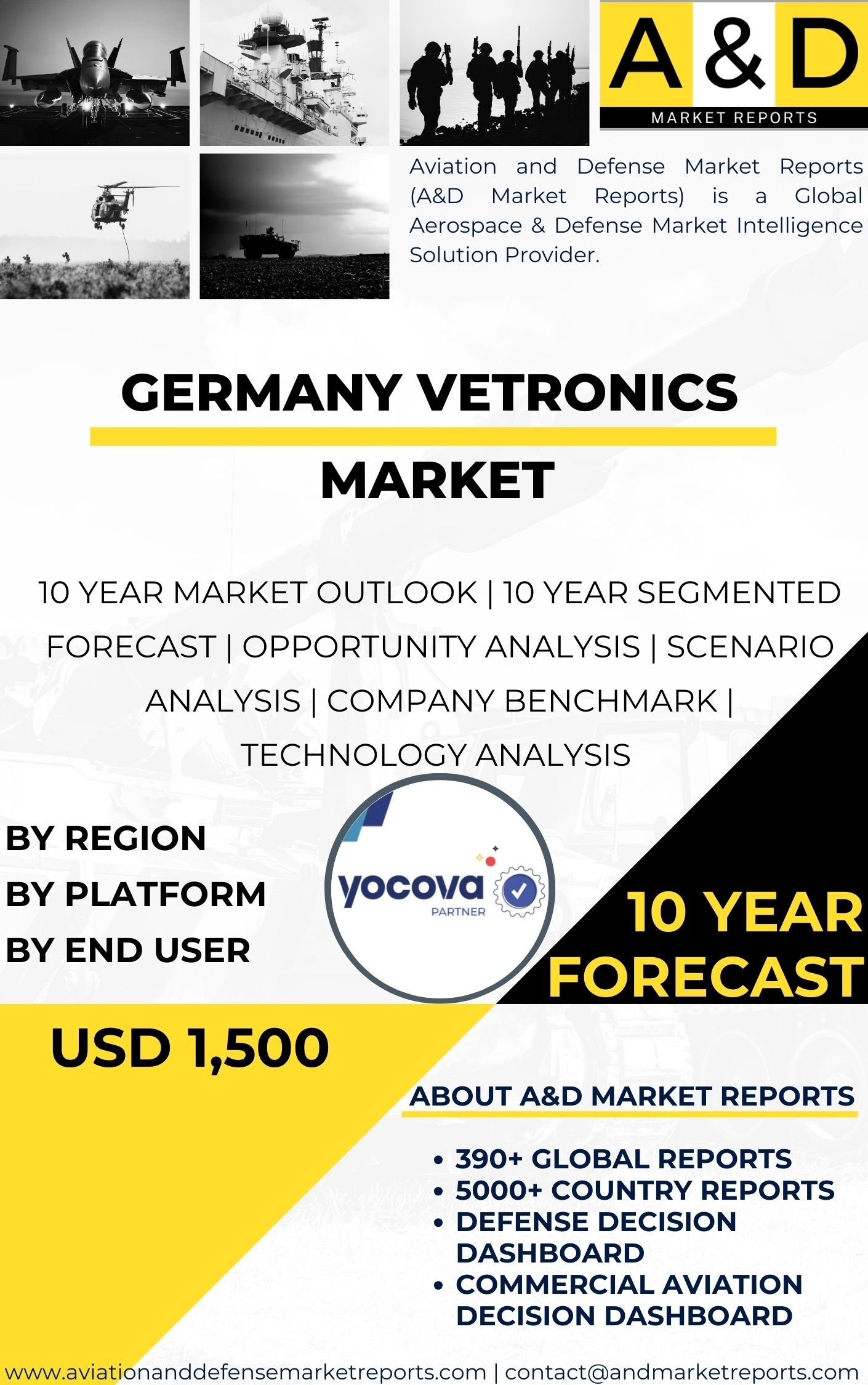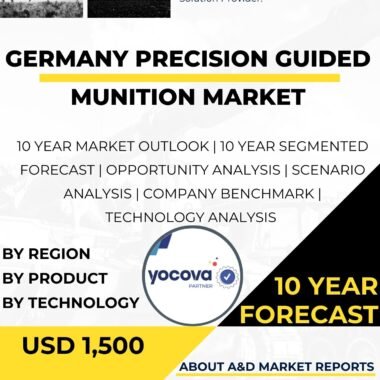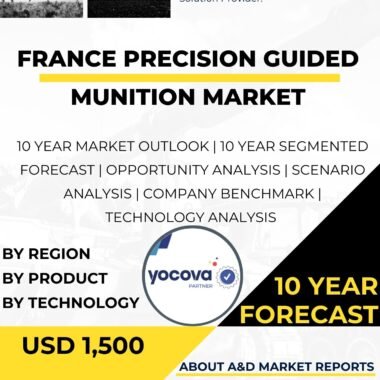Description
Germany vetronics market has been a significant and dynamic segment within the country’s defense and automotive industries. Vetronics, short for vehicle electronics, refers to the integration of advanced electronic systems and technologies into military vehicles to enhance their operational capabilities, situational awareness, and overall effectiveness on the battlefield. These advanced systems play a crucial role in modernizing Germany’s armored and tactical vehicle fleet, improving the performance of its military forces, and maintaining a competitive edge in a rapidly evolving security landscape.
As a leading European economy and a technologically advanced nation, Germany understands the significance of investing in cutting-edge vetronics to enhance its military capabilities and ensure the protection of its troops during combat.
The market encompasses both domestic production and imports of vetronics systems and related technologies. Germany has reputable defense contractors, technology firms, and automotive companies that develop and manufacture a wide range of vetronics solutions, including vehicle mission systems, electronic warfare systems, communication systems, and vehicle diagnostics systems. Additionally, Germany also collaborates with other countries and imports vetronics technologies to benefit from technological cooperation and meet specific operational requirements.
The Germany vetronics market is characterized by a focus on innovation and technological advancements. Companies in Germany continuously strive to develop state-of-the-art vetronics systems with improved connectivity, data processing capabilities, and compatibility with other vehicle systems. The integration of advanced sensors, artificial intelligence (AI), and data analytics has been a key area of research and development to enhance the performance and versatility of German vetronics.
The export potential of German vetronics systems is another important aspect of the market. Germany’s reputation for producing high-quality and reliable defense equipment has made it an attractive supplier for other countries seeking advanced vetronics solutions for their military vehicles. However, export decisions are subject to international regulations and political considerations, especially when it comes to the export of sensitive military technologies.
The Germany vetronics market also addresses challenges related to interoperability and standardization. Ensuring that vetronics systems can effectively communicate and collaborate with other vehicle systems and broader military networks is essential for optimizing their effectiveness and facilitating seamless operations on the battlefield.
Moreover, the Germany vetronics market must address concerns related to cybersecurity and data protection. Vetronics systems are increasingly interconnected and reliant on communication networks, and ensuring the security and resilience of these networks is critical to maintaining operational security and safeguarding sensitive data.
In recent years, there has been a growing emphasis on the development of vetronics systems with modular and scalable architectures. Germany is investing in research and development to explore how vetronics can be designed to support a wide range of military vehicles, from main battle tanks to armored personnel carriers, and how they can be easily upgraded and adapted to meet evolving mission requirements.
Challenges faced by the Germany vetronics market include the need to adapt to changing operational requirements and emerging technologies. As the nature of warfare evolves, vetronics systems must continuously evolve to meet new challenges, including the integration of AI, machine learning, and autonomous decision-making capabilities.
The market also needs to address concerns related to cost-effectiveness and the need to balance investments in vetronics technology with other defense priorities. Vetronics systems can be resource-intensive to develop, procure, and maintain. Decision-makers must carefully prioritize investments to ensure that vetronics capabilities align with Germany’s broader defense requirements.
In conclusion, the Germany vetronics market is a significant and dynamic segment within the country’s defense and automotive industries. Advanced vetronics systems play a crucial role in modernizing Germany’s military vehicles, improving the performance of its armed forces, and maintaining a competitive edge in the evolving security landscape. The market is driven by Germany’s commitment to technological advancement, advancements in vetronics systems, and the need to balance investments with other defense priorities. As Germany continues to invest in research and development and explores innovative vetronics solutions, the vetronics market is expected to play an increasingly pivotal role in shaping the country’s military capabilities and ensuring the protection and effectiveness of its troops on the battlefield




